The Jamal Khashoggi case has already taken its place in history as an important link in the political geography of Islam after the Arab Spring.
Public opinion is being bombarded by news reports regarding the murder. There is a ton of information and assumptions making rounds in the international press which cannot be verified nor proven false.
In a case like this, where crime and politics intertwine, the actual “truth” of the matter has become increasingly obscure.
Despite the international dimensions of the event, a Saudi citizen and journalist, was murdered in the consulate of Saudi Arabia in Istanbul. While the case is complicated, everybody agrees that the Saudi administration, who was finally forced to accept that the murder took place, has lost great deal of international legitimacy.
What was Khashoggi’s place in the Saudi political arena?
Jamal Khashoggi is portrayed insistently as a neutral, benevolent and anti-regime journalist by the US press, but, in fact, if we examine his family and political background more closely, it becomes clear that the Khashoggis and the Saudi dynasty are deeply intertwined. The Khashoggi Family is a major player in Saudi politics.
His grandfather, Muhammed Halid, was a founder of Saudi Arabia, and King Ibn Saud’s private doctor. His uncle, who played a key role in the Iran-Contra scandal that erupted in the United States, is a gun smuggler known to the world press.
Jamal Khashoggi quickly advanced his career as a journalist and became the Editor-in-Chief of leading pro-regime newspapers as a result of his family connections.
In this process, with the guidance of the head of Saudi intelligence El Turki, he was evolving toward an ideology close to the Egyptian Muslim Brotherhood, despite his close relations with Osama bin Laden and radical Islamist groups.
When Khashoggi entered a political position close to the Ikhwan (Muslim Brotherhood), the position lead to contradictions in his relationship to the Saudi Dynasty, as the latter considers the brotherhood as a threat to their power.
However, the fact that Khashoggi offered to advise crown prince Mohammed Bin Salman shows that these contradictions were never a real threat to the Saudi monarchy.
All things considered, Khashoggi’s close relationship with Qatar, the Muslim Brotherhood and Turkey lead to a disruption in his ties with Saudi Arabia, which turned Khashoggi from a friend of the regime to a target.
In November 2017, just before Prince Bin Salman established his corrupt commision against his domestic opponents, Khashoggi left the country. This shows he was well aware of the situation.
In summary, Khashoggiı’s political background shows that he played an active role in high level battles in Saudi Arabia, and that he had strong disagreements with the country’s leadership, especially with the current administration regarding their foreign policy and attitude towards the Muslim Brotherhood.
Why did the Saudi Government kill Khashoggi in such a public way? Did they not anticipate such a strong reaction?
The Murder and its Political consequences
The Saudi Arabian administration officially acknowledged responsibility for the killing of Khashoggi and issued a press statement stating that those involved in the murder have been arrested.
What happened in the Consulate will probably never fully come to light, but the situation has certainly been a great blow to the rise of crown prince Bin Salman.
The former Head of the Intelligence Department of the Turkish General Staff, Ismail Hakki Pekin, claims that MOSSAD was behind the murder, and that the murder had the impact of a bomb exploding in the hands of Saudi Intelligence.
As Mr. Pekin notes, if we examine the actions of the intelligence agencies involved, it seems absurd for the Saudis to kill Khashoggi in a Consulate building which is under 24 hours surveillance.
In any case, it is obvious that there was a hitch in the plans of those who designed the murder.
The young Saudi prince, Bin Salman, and even King Salman, have been strongly affected by Saudi intelligences disastrous handling of the operation.
Between the US and Saudi Arabia
Prior to the Trump administration, the differences between the US administration and Riyadh, especially in the Muslim Brotherhood, were notable. Saudi Arabia’s King Salman was the first King of Saudi Arabia to visit Moscow. The S400 agreement, signed between Saudis and Russia, was a popular topic on the international agenda.
In Egypt during the overthrow of President Morsi of Muslim Brotherhood in 2013, the United States was positioned next to Morsi, while the Saudis chose to support General El-Sisi.
Even though it is claimed that relations between the two countries have improved since Trump became president, it was never possible to talk about full compliance because of the influence of anti-Trump elements on US foreign policy.
At this point, it is possible to say that different factions in the the US and Saudi Arabian administrations played a decisive role in the murder of Khashoggi.
The fact that the battle between these factions took place in Turkish territory can also be considered as a message to Ankara which continues to support the Muslim Brotherhood and Qatar.
Here are a list of concrete results regarding the incident
1) Khashoggi, who supported the alliance of Turkey, Qatar and the Muslim Brotherhood, a Saudi citizen who has deep ties with the US, was killed in Turkey. It is clear that, through this murder, a message has been sent to this alliance and their supporters.
2) The Saudi administration, which has made steps towards Russia in their foreign policy, has also been affected by the bungled murder.
3) The Saudi administration, which lost a great deal of international legitimacy after the murder, was also a strong ally of Trump, who tried to change the Pentagon and the US state’s traditional policies toward the kingdom.
If we look at the facts, it is possible to say that Saudi Arabia’s more or less good relations with both Russia and Trump were damaged by the murder.
As mentioned at the beginning of the article, the turbulence started after the Arab Spring has not yet ended. The waves originating from the Pentagon’s Greater Middle East Project did not stop with victory in Syria, but continue to affect the region.







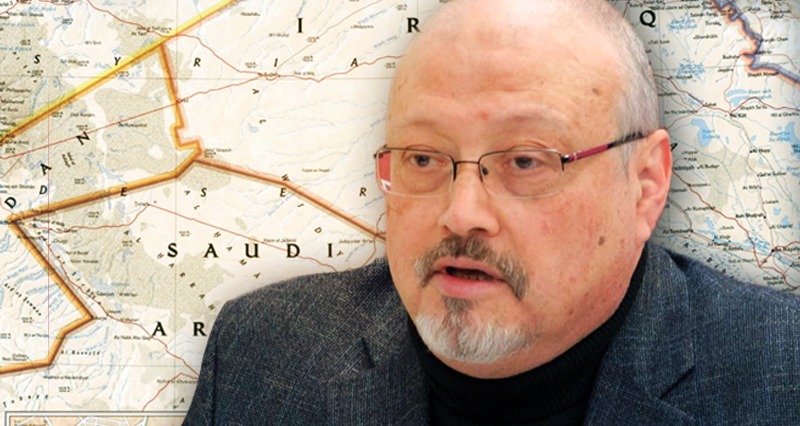



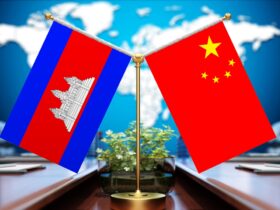

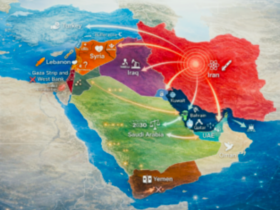
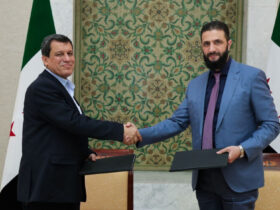
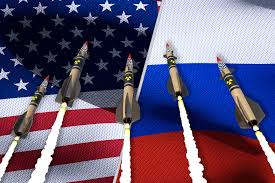

Leave a Reply